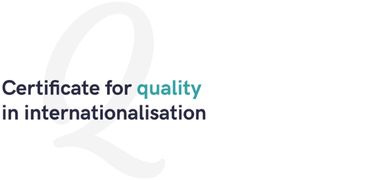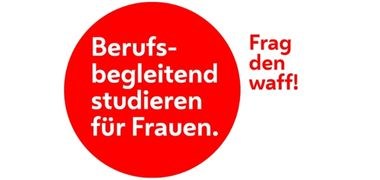 master programme quantitative asset and risk management" >
master programme quantitative asset and risk management" >
Quantitative Asset and Risk Management (English)
Practice-oriented education for the financial experts of tomorrow
In the Quantitative Asset and Risk Management (ARIMA) master’s programme you will gain knowledge and practical skills through intensive, practice-based training in the fields of financial risk management and asset management. Comprehensive insights of industry experts focussing on banking and insurance will further enhance your learning. This unique combination opens up exciting prospects for a highly successful career in the finance sector.
International experience and a professional network
Benefit from our diverse international offerings:
- Graduate with a double degree.
- Study at a partner university, either for a whole semester or by participating in an intensive programme for two weeks.
- Exchange ideas, in Vienna and abroad, with students from all over the world.
- Engage with lecturers boasting a range of professional experience in Europe and abroad.
The global network and the international skills you gain in this programme pave the way to a dynamic and mobile international career.
In recognition of our programme’s focus on internationalisation, we were awarded the Certificate for Quality in Internationalisation (CeQuInt) in 2023.
Data management and analysis skills for the future
Learn to use the most widely used programming languages and tools in the finance world, such as Python, R, SAS, SQL and Bloomberg. Mastering these technical skills is essential for modern asset and risk management, and acquiring them prepares you for the demands of the job market.
During the course of this programme, you have the opportunity of earning certificates and qualifications, such as the SAS Joint Certificate. Such qualifications demonstrate your skills and enhance your career opportunities.
An efficient start to your studies
While our programme appeals to candidates with an affinity for mathematics and statistics, we recognise that not all students start with the same level of theoretical knowledge. Our onboarding programme supports you in preparing for the complex topics of the programme. Targeted warm-up courses and support from academic staff lay the foundations for achieving success in your studies.
Online info sessions
Would you like to learn more about the Quantitative Asset and Risk Management degree programme and have your individual questions answered? Then register now for our online info sessions! The degree programme team will inform you about application and admission, study contents and career opportunities.
Dates:
- Wednesday, 15. April 2026, 5:00 - 7:00 pm (online)
You can spontaneously join our online info sessions without registering. Just click on the link below:
Master Afterwork
Join us at the Master Afterwork event at the UAS BFI Vienna and discover our future-oriented programmes: With drinks, music and a relaxed atmosphere, you’ll have the chance to meet students, graduates and programme teams, exchange ideas and ask your individual questions.
- Thursday, 23. April 2026, 6:00 - 10:00 pm
As a graduate you will be able to:
- describe and analyse the connections between asset and risk management in finance
- quantify and assess risk types in risk management, and infer measures for integrated steering of banks and insurance companies
- analyse various asset classes and their products
- carry out portfolio selections, and calculate key performance and risk measures
- apply financial mathematics and statistics to developing financial models
- solve problems together with experts from other disciplines by applying risk management and asset management strategies and methods under consideration of ethical and social responsibilities
- cooperate, as competent experts, in a globalised work environment or in international teams
Typical career fields open to you after graduation:
- Asset management
- Risk management
- Liability management
- Private banking and family office
- Compliance and regulatory reporting
- Consulting
You can find more information in the current brochure of the degree programme
Einen Blick hineinwerfen:
Brochure Quantitative Asset and Risk Managementwaff Funding for Women in Part-Time Master’s Studies
Our programme is part of an initiative by the Wiener Arbeitnehmer*innen Förderungsfonds (waff) that supports women who are working and pursuing part-time master’s studies in fields such as digitalisation, sustainability and technology. Eligible students can receive financial support of up to €9,000, as well as funding for preparatory and tutoring courses and access to coaching, networking opportunities and workshops that foster academic and professional development. This funding helps reduce financial barriers, supports the balance between work and study and makes our master’s programme an even more attractive pathway into a high-demand field.
Downloads
-
Brochure Quantitative Asset and Risk Management Download icon(pdf 2,502 MB)
-
Curriculum MA ARIMA Quantitative Asset and Risk Management Download icon(pdf 285,632 KB)
-
Admission preparation Quantitative Asset and Risk Management Download icon(pdf 1,264 MB)
-
Guide Master Application and Admission Download icon(pdf 448,239 KB)
-
Education Contract Master Download icon(pdf 224,662 KB)
-
General terms and conditions of the University of Applied Sciences BFI Vienna for payment of a security deposit Download icon(pdf 286,762 KB)


Get to know our degree programme
Our partners:

Veronika Hallwirth
Coordination of the study programme
+43 1 720 12 86-931

ECTS and course information
Ergebnisse werden geladen
-
Lehrveranstaltung Structured Products
 ECTS Credits 2.00 ECTS CreditsSprache Englisch SpracheStudienplan BB StudienplanSemester 2 SS Semester
ECTS Credits 2.00 ECTS CreditsSprache Englisch SpracheStudienplan BB StudienplanSemester 2 SS Semester ja symbol
ja symbol
-
Lehrveranstaltung ALM and Insurance Management
 ECTS Credits 3.00 ECTS CreditsSprache Englisch SpracheStudienplan BB StudienplanSemester 3 WS Semester
ECTS Credits 3.00 ECTS CreditsSprache Englisch SpracheStudienplan BB StudienplanSemester 3 WS Semester ja symbol
ja symbol
-
Lehrveranstaltung Bank Management
 ECTS Credits 5.00 ECTS CreditsSprache Englisch SpracheStudienplan BB StudienplanSemester 3 WS Semester
ECTS Credits 5.00 ECTS CreditsSprache Englisch SpracheStudienplan BB StudienplanSemester 3 WS Semester ja symbol
ja symbol
-
Lehrveranstaltung Integrating Aspects of Asset Management
 ECTS Credits 6.00 ECTS CreditsSprache Englisch SpracheStudienplan BB StudienplanSemester 3 WS Semester
ECTS Credits 6.00 ECTS CreditsSprache Englisch SpracheStudienplan BB StudienplanSemester 3 WS Semester ja symbol
ja symbol
-
Lehrveranstaltung Legal Framework and Ethics
 ECTS Credits 3.00 ECTS CreditsSprache Englisch SpracheStudienplan BB StudienplanSemester 3 WS Semester
ECTS Credits 3.00 ECTS CreditsSprache Englisch SpracheStudienplan BB StudienplanSemester 3 WS Semester ja symbol
ja symbol
-
Lehrveranstaltung Management of Life Risk
 ECTS Credits 3.00 ECTS CreditsSprache Englisch SpracheStudienplan BB StudienplanSemester 3 WS Semester
ECTS Credits 3.00 ECTS CreditsSprache Englisch SpracheStudienplan BB StudienplanSemester 3 WS Semester ja symbol
ja symbol
-
Lehrveranstaltung Management of Non-Life Risk
 ECTS Credits 3.00 ECTS CreditsSprache Englisch SpracheStudienplan BB StudienplanSemester 3 WS Semester
ECTS Credits 3.00 ECTS CreditsSprache Englisch SpracheStudienplan BB StudienplanSemester 3 WS Semester ja symbol
ja symbol
-
Lehrveranstaltung Operational Risk for Banks
 ECTS Credits 2.00 ECTS CreditsSprache Englisch SpracheStudienplan BB StudienplanSemester 3 WS Semester
ECTS Credits 2.00 ECTS CreditsSprache Englisch SpracheStudienplan BB StudienplanSemester 3 WS Semester ja symbol
ja symbol
-
Lehrveranstaltung Risk Controlling and Organisation Credit Risk
 ECTS Credits 3.00 ECTS CreditsSprache Englisch SpracheStudienplan BB StudienplanSemester 3 WS Semester
ECTS Credits 3.00 ECTS CreditsSprache Englisch SpracheStudienplan BB StudienplanSemester 3 WS Semester ja symbol
ja symbol
-
Lehrveranstaltung Risk Controlling and Organisation Market Risk
 ECTS Credits 2.00 ECTS CreditsSprache Englisch SpracheStudienplan BB StudienplanSemester 3 WS Semester
ECTS Credits 2.00 ECTS CreditsSprache Englisch SpracheStudienplan BB StudienplanSemester 3 WS Semester ja symbol
ja symbol

"As part of the programme, students are familiarised with the different types of risks to which financial institutions are exposed and learn to identify, assess and manage them. This is of central importance, as the complexity of global financial markets is increasing due to new innovations such as AI or blockchain and continuously increasing regulation. Overall, the degree programme offers a comprehensive education that covers both the quantitative and qualitative aspects of finance and optimally prepares students for a career in the the capital markets."
Alexander Fischer, MA, MSc, graduate






